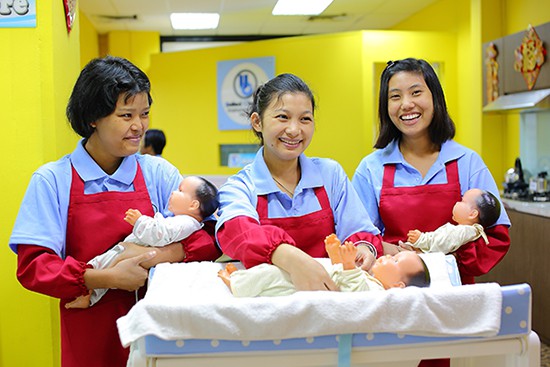In the elaborate web of global care networks, foreign domestic helpers enjoy a pivotal but frequently disregarded part. From Hong Kong for the Midsection Eastern and above, these migrant workers kind a crucial part of households, providing care and support to families globally. Understanding their role with this dynamic system garden sheds light-weight about the complexities and challenges confronted by equally foreign domestic helpers along with the families they serve. One of the major good reasons for the reliance upon foreign domestic helpers may be the increasing involvement of girls from the labor force worldwide. With more moms coming into employment, the require for domestic help has surged. This trend, coupled with growing older populations in several developed countries, has produced an increasing require for caregivers. Foreign domestic helpers part of to load this desire, offering important assistance with childcare, eldercare, and household chores. Even so, powering this somewhat easy trade lies a host of intricate concerns. Foreign domestic helpers frequently migrate from economically disadvantaged locations to wealthier countries searching for far better opportunities.

In many cases, foreign domestic helpers are employed beneath prohibitive labor laws and face precarious working conditions. They might be subject to lengthy hours, low wages, and restricted access to healthcare and legal protections. Additionally, their immigration standing ties these to their employers, causing them to be vulnerable to exploitation and abuse. These systemic injustices highlight the need for more robust legal frameworks and enforcement elements to protect the rights of foreign domestic helpers. Even with these challenges, foreign domestic helpers play an important role in permitting the involvement of girls in the workforce and supporting families within their daily lives. Their contributions usually extend above useful help to emotional support and friendship, particularly for children and also the elderly. Numerous families create near bonds making use of their foreign domestic helpers, acknowledging them as crucial individuals their households. Moreover, higher recognition and education are needed to battle stereotypes and prejudices against foreign domestic helpers.
Moreover, 僱傭中心 make contributions considerably to the economies with their host countries through remittances delivered back with their house countries. These financial transfers assist ease poverty and support neighborhood economies, displaying the interconnectedness of global care networks. Nevertheless, it is recommended to recognize that counting on remittances as an approach to poverty will not be sustainable long term and must be complemented by initiatives to manage root reasons behind economic inequality. To improve the well-being of foreign domestic helpers and be sure fair and equitable treatment, extensive reforms are needed at both nationwide and overseas degrees. Authorities need to enact policies that guard the rights of migrant workers, including procedures for acceptable wages, decent working conditions, use of healthcare, and techniques for legal recourse in the event of abuse or exploitation. Promoting cultural awareness and empathy can foster far more comprehensive societies and struggle discriminatory behavior in the direction of migrant workers. Civil society organizations and advocacy groups perform a crucial role in rearing recognition, delivering support services, and advocating for policy changes to maintain the rights of foreign domestic helpers.
